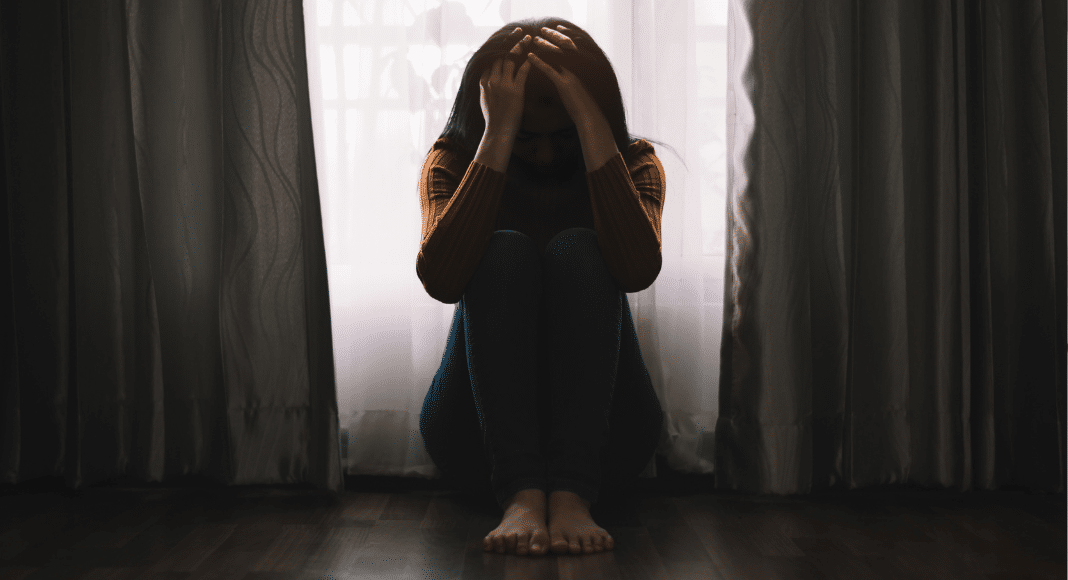 The call comes at 9 am on a Sunday morning. My sister calls, and I answer. “I don’t even know how to begin.” She says, “It’s about Jeff.” He had a mental health crisis, his worse yet. He has bipolar type I. My sister goes on to explain that last night, something set him off, and he started destroying my parents’ house. My brother was in a state of psychosis. He was seeing and hearing things that weren’t real. He went on to break windows, flood the upstairs bathroom, and put holes into the walls. He was taken to the hospital to get help. Her words should have shocked me, but they didn’t. I had seen him in this state before. In his right mind, my brother is gentle and kind. In his right mind, he would not have done this. People often throw around the term ‘bipolar’ without knowing what it means. I also did not understand the condition until someone close to me experienced it.
The call comes at 9 am on a Sunday morning. My sister calls, and I answer. “I don’t even know how to begin.” She says, “It’s about Jeff.” He had a mental health crisis, his worse yet. He has bipolar type I. My sister goes on to explain that last night, something set him off, and he started destroying my parents’ house. My brother was in a state of psychosis. He was seeing and hearing things that weren’t real. He went on to break windows, flood the upstairs bathroom, and put holes into the walls. He was taken to the hospital to get help. Her words should have shocked me, but they didn’t. I had seen him in this state before. In his right mind, my brother is gentle and kind. In his right mind, he would not have done this. People often throw around the term ‘bipolar’ without knowing what it means. I also did not understand the condition until someone close to me experienced it.
This is the side of mental health that the public doesn’t see. Bipolar type I is classified as a severe mental health condition; it is marked by manic episodes followed by depressive episodes, according to the DSM V. The DSM V is the diagnostic guideline for mental health conditions. People who are manic can stay up for days on end with energy levels that are off the charts. The most concerning thing about people who are in this state is that they say and do things that are dangerous. Their sense of safety and judgment goes down. My brother has psychosis as well. To be clear, not everyone with Bipolar Disorder will have psychotic features. This is an additional layer to my brother’s situation that he has to bear.
It started nine years ago. I came back from college that summer and noticed my brother was acting strangely. I told my mom, “Something is off about Jeff.” He was up late at night cooking, coming up with recipes that didn’t make sense. He took apart the family’s computer, thinking he needed to fix it; in the process, he broke it. Then he started to do things that were really dangerous. Running away, driving a car without a license. All the while, he had good reasons in his mind for doing these things. It was then he was diagnosed with bipolar type I at the age of 14.
My family and I learned about mental illness head-on. We had cases of anxiety and depression in our family, but this was our first experience with severe mental illness.
My brother became stable on medications shortly after being diagnosed. He was able to graduate high school and pursue a technical degree. However, he had breakthrough episodes of mania, ‘flare-ups,’ as I call them. Medications sometimes weren’t enough. There were times he was violent toward my dad. He had an episode where he damaged lights at a stranger’s house. They should have pressed charges, but they didn’t. They had someone in their lives with severe mental illness, and they understood.
He’s at a good point now. He’s being closely followed by a psychiatry provider. He takes his meds regularly. He leads a normal life. I feel compassion toward my brother because he doesn’t mean to cause harm; it’s his mental health condition. When my family was going through this crisis, and my brother was in the hospital, our closest friends didn’t know. We wanted to keep my brother’s privacy and give him the chance to lead a normal life without fear of what people would think of him.
It can be an isolating experience for patients and family members. I told my husband, “If someone in the family had a heart attack, you’d bet people would call, drop off meals, and we’d have support.” We felt so alone. I just wish the public was made more aware of these issues with mental illness. I wish they could understand.
My brother has done amazingly well despite the odds. It’s been six months since his last manic episode. He has a girlfriend. He got a job and is doing well. I have the utmost faith in him. He’s hardworking and has a good heart. He has the support of his family. Many people can’t say the same. I share this story knowing that there are others affected by severe mental illness. We’ve gone through the peaks and valleys with my brother. And I believe he’ll come out the other side.








